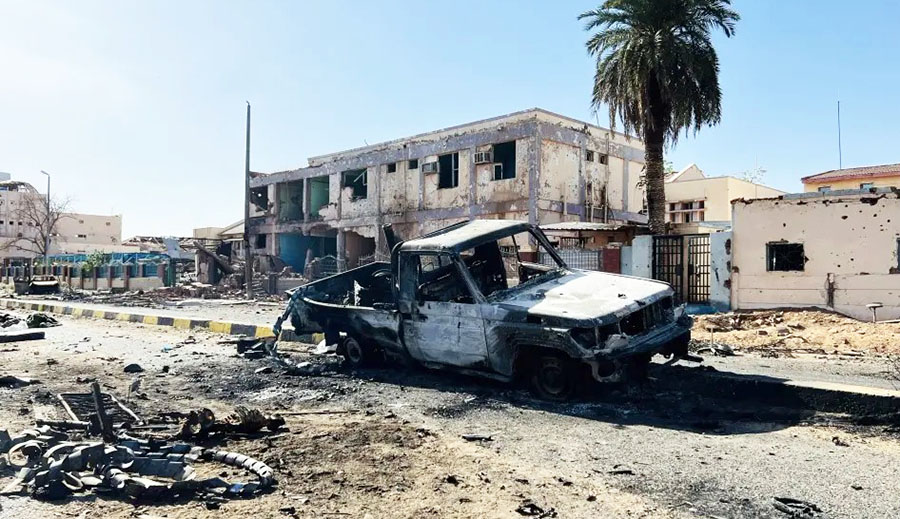
UN Fact-Finding Mission: Darkest Chapters of Sudan War May Be Ahead
Moatinoon
The Independent International Fact-Finding Mission on Sudan condemned the reported massacre over the weekend that killed more than 100 people in camps for displaced people in Darfur, warning that the already devastating conflict in the country could tragically escalate as the war enters its third year.
The mission renewed its call for the warring parties to immediately cease fire and stop attacking civilians. It also urged other states to refrain from fueling the war and ensure respect for international humanitarian law.
“As Sudan enters its third year of conflict, we must reflect on the catastrophic situation in the country and honor the souls of all Sudanese who have lost their lives or had their lives forever altered,” said Mohamed Chande Osman, Chair of the Fact-Finding Mission. “The world has witnessed two years of brutal conflict that has trapped millions of civilians in horrific conditions, subjecting them to abuses and suffering with no end in sight. With hate speech and ethnically based revenge violence on the rise, we fear that the darkest chapters of this conflict are yet to begin.”
Established by the Human Rights Council in October 2023, the Fact-Finding Mission investigates violations committed during the conflict by gathering testimonies from witnesses and survivors of some of the most horrific crimes in the country. The mission recently received firsthand accounts of atrocities committed in El Fasher and surrounding areas in North Darfur, including reports of civilians being targeted and killed by shelling, along with widespread looting, destruction, and burning of civilian property, farms, and crops.
Survivors from Zamzam camp, south of El Fasher—one of Sudans largest internally displaced persons (IDP) camps, estimated to house around 750,000 people, half of whom are children, according to UNICEF—reported living in siege-like conditions, severely restricting their access to food, water, medicine, and movement. These conditions persist today, and humanitarian access to the camp remains virtually impossible, resulting in children dying from starvation, according to the World Food Programme.
Survivors also reported being arrested, harassed, robbed, and detained at checkpoints around El Fasher and Zamzam camp. They provided accounts of the looting of property, livestock, and food supplies, the killing of dozens of people, and the burning of dozens of villages around El Fasher, including northward between Kutum and Anka in October 2024, and Abu Zerega, Shagra, and Golo in December 2024 and January 2025. Most of these atrocities were attributed to the Rapid Support Forces.
The recent attacks by the Rapid Support Forces, which began on April 11 and targeted the Zamzam and Abu Shouk camps for internally displaced persons, as well as the city of El Fasher, resulted in the deaths of more than 100 civilians, including nine medical workers from the international relief organization.
The mission also received disturbing reports of retaliatory attacks by the Sudanese Armed Forces and their allies in areas retaken from the Rapid Support Forces. The mission is investigating these attacks, including reports of the detention and extrajudicial executions of members of the Rapid Support Forces and individuals believed to have provided support to them, in areas previously under their control, particularly in Dinder and Singa in Sennar State and Wad Madani in Gezira State, between September 2024 and January 2025.
The areas over which the Sudanese Armed Forces (SAF) declared full control in Khartoum on April 7 have witnessed brutal reprisals by the SAF and its allies, including public executions without fair trials of civilians accused of collaborating with the RSF and mass arrests in neighborhoods such as Kalakla and other parts of southern Khartoum. The fate of the detainees remains unknown.

